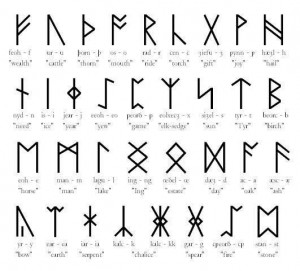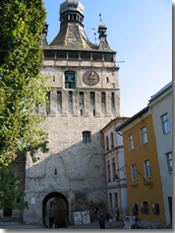 history
history
A popular expression here in the United States is “That’s history,” as if history is dead and irrelevant. To me, the legacy of history is present in our lives and our politics today, everywhere from Europe to Asia, from Latin America to the Middle East, from the US to Australia and Oceania. Just think about the ‘culture wars’ over values that are raging in this country, which to me seem so clearly the legacy of the Protestant Reformation and the Puritan settlement of North America. There are countless examples of the impact of history on our daily lives in the present era. I’ve been reading history since I first learned to read. I’m especially interested with European and Asian history, and within those regions, I’ve read most about Britain, France, Germany, Italy, China, Japan, and Korea. Of all the periods, 16th and 17th century Europe are the most fascinating to me: the period from the beginning of the Reformation through the Renaissance and the early Enlightenment strikes me as perhaps the most formative in Western history. And there is no more fascinating a cast of characters than that of the great European dynasties of the era: the Tudors , the Valois , the Bourbons, the Stuarts and the Hapsburgs. But history isn’t just the stories of Henry VIII and his six wives, it’s the story of all of us, including members of the lesbian, gay, bisexual and transgender (LGBT) community; as members of that community, we have a special obligation to record and preserve LGBT history, which is a personal priority of mine.
{photo: The great clock tower of Sighisoara (the birthplace of Vlad Dracula in Transylvania) was built by German immigrants from Saxony in the 14th century.}
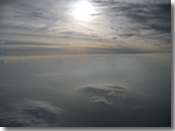 philosophy
philosophy
I majored in philosophy as an undergraduate at the University of Wisconsin-Madison and I currently keep up with philosophy as best I can as a member of the Philosophy Forum, a group of people (mostly amateur philosophy enthusiasts) that meets twice monthly at the LGBT Community Center in Manhattan (if you live in the NYC area and are interested in participating, see the links page on this site). Among my favorite texts of philosophy are the dialogues of Plato (especially the Symposium), the Enneads of Plotinus, the Tao Te Ching (usually attributed to Laozi — or ‘Lao Tsu’), and the Seven Inner Chapters of Zhuangzi (Chuang Tsu).. The philosophical text that best expresses my philosophy of life is the conclusion from Walden by Henry David Thoreau:
“…I left the woods for as good a reason as I went there. Perhaps it seemed to me that I had several more lives to live, and could not spare any more time for that one. It is remarkable how easily and insensibly we fall into a particular route, and make a beaten track for ourselves. I had not lived there a week before my feet wore a path from my door to the pond-side; and though it is five or six years since I trod it, it is still quite distinct. It is true, I fear, that others may have fallen into it, and so helped to keep it open. The surface of the earth is soft and impressible by the feet of men; and so with the paths which the mind travels. How worn and dusty, then, must be the highways of the world, how deep the ruts of tradition and conformity! I did not wish to take a cabin passage, but rather to go before the mast and on the deck of the world, for there I could best see the moonlight amid the mountains. I do not wish to go below now.
“I learned this, at least, by my experiment: that if one advances confidently in the direction of his dreams, and endeavors to live the life which he has imagined, he will meet with a success unexpected in common hours. He will put some things behind, will pass an invisible boundary; new, universal, and more liberal laws will begin to establish themselves around and within him; or the old laws be expanded, and interpreted in his favor in a more liberal sense, and he will live with the license of a higher order of beings. In proportion as he simplifies his life, the laws of the universe will appear less complex, and solitude will not be solitude, nor poverty poverty, nor weakness weakness. If you have built castles in the air, your work need not be lost; that is where they should be. Now put the foundations under them…”
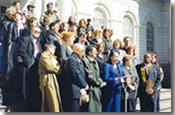 politics
politics
Politics is certainly about government policy and elections, which can have a profound impact on our lives; just think about the implications of the election of Ronald Reagan in 1980 and Donald Trump in 2016 and the (non-)election of George W. Bush in 2000. Here in the United States, some of us seem to have been under the delusion that conditions and events beyond our shores do not affect us; the terrorist attacks of 9/11 should have definitively addressed that question. But as vital as politics in this narrower sense may be, I would cite Foucault in arguing that all of our relationships are in some important sense political, involving as they do relations of power. Many of my writings are concerned with politics writ small, and all of them are concerned with politics writ large.
{photo: NYAGRA launched the public phase of the campaign for Int. No. 24 (the New York City transgender rights bill) at a press conference on the steps of City Hall (2.29.2000).}
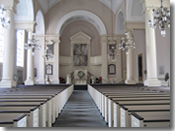 spirituality
spirituality
When many people think of religion and spirituality, they think of only the most regressive forms of fundamentalist Christianity, Judaism or Islam. But just as there are those who — like Pat Robertson and Jerry Falwell or the Ayatollah Khomeini and the Ayatollah Khamenei — use religion in a false and destructive manner, there are also more progressive spiritual traditions such as Unitarian Universalism that are LGBT-inclusive and affirming as well as socially and politically conscious. I was raised in the Lutheran Church-Missouri Synod, which was taken over by its fundamentalist wing around the time of my confirmation. I left the church and had no affiliation with organized religion for over 30 years until I joined the Unitarian Church of All Souls (on the Upper East Side of Manhattan) in 2005. All Souls is rooted in a tradition that values “Direct experience of that transcending mystery and wonder, affirmed in all cultures, which moves us to a renewal of the spirit and an openness to the forces which create and uphold life…”
{photo: The Unitarian Church of All Souls in Manhattan}
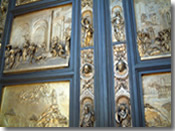 art
art
Ironically enough, given how much I now love art, painting and the visual arts really felt very foreign to me as a child. It wasn’t until my senior year in college, when I took a course in modern art while doing a study abroad program in London, that my eyes were opened to the wonderful world of art, through great modernist artists such as Picasso, Monet and Cezanne. From there, I worked my way backwards through the Old Masters. In London, I also took a (very) short course in Chinese ceramics at the British Museum, which awakened me to the astonishing riches of Chinese art. Within the field of Asian art, I find great appeal in celadon (Sung dynasty and Korean), Ming blue-and-white porcelain, Han figures, Japanese screens, and Zen art. Among my favorite European artists are Jan Van Eyck (the Arnolfini Wedding), Hieronymus Bosch (the Garden of Delights and the Hay Wain), Pieter Brueghel the Elder (the Tower of Babel), the Limbourg Brothers (les Tres Riches Heures de Jean Duc de Berry), and Antoine Watteau (Embarcation a Cythere, l’Enseigne de Gersaint), and just to name a few. While traveling around Europe, there were three works of art that struck me more forcibly than any others: the so-called Elgin Marbles (the Parthenon sculptures, half of which are in the British Museum in London and half in the Acropolis Museum in Athens), l’Agneau Mystique (the Ghent Altarpiece) of Van Eyck, and the bronze doors that Lorenzo Ghiberti made for the baptistery of the Duomo in Florence, which Michelangelo dubbed ‘the Gates of Paradise’ (i Portali del Paradiso).
{photo: The doors of Grace Cathedral in San Francisco are exact replicas of the bronze doors that Lorenzo Ghiberti made for the baptistery of the Duomo in Florence, which Michelangelo dubbed ‘the Gates (or ‘Doors’) of Paradise’ (i Portali del Paradiso).}
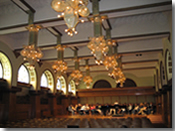 music
music
I believe it was Anatole France who once decalred that all the arts aspire to the condition of music. Of all the arts, music has been the closest and the dearest to me from an earliest age. I grew up with classical music, and I’ve been in the process of rediscovering the piano music that I studied in my youth, including that of Bach, Beethoven, Schumann, Chopin and Debussy, who are among my favorite composers for the piano. I have also been exploring the vocal literature, both through listening and through singing. Among lieder, nothing comes closer to expressing my spirituality than “Mondnacht” of Schumann and the “Litanei” of Schubert. And the finale of Mahler’s Fourth Symphony seems to me as close to the music of heaven as we are likely to hear on earth. I also love the French Baroque, including the music of Couperin and Rameau. Among non-Western traditions, my favorite is Balinese gamelan music, especially the stunning style developed in the early 20th century known as gamelan gong kebyar. I’ve seen three performances of Balinese gamelan music and dance (one in London and two in New York), and I find it absolutely dazzling.
{photo: Ganz Hall, the venue for many performances at Roosevelt University in Chicago, is a masterpiece of early 20th c. design by the celebrated architect Louis Sullivan.}

theater & opera
Theater- and opera-going during the two years I lived in London were an extraordinary experience. I reckon I saw more than 100 operas and probably nearly as many plays. I now live in that other great capital of theater and opera, New York. Whenever they do an interview with a celebrity and ask for the shortlist of books that he or she would take to a desert island, they always seem to make the qualification that the individual will be supplied with the Bible and the complete works of Shakespeare; there’s a reason for that, isn’t there? To me, Shakespeare represents the very summit of dramatic art, and while I realize that thought is not an original one, there is no other playwright who comes even close to his extraordinary use of language to shape a comedy or a tragedy. Among Shakespeare’s plays, “King Lear” is the one I find the most metaphysical; I also love the language of “Richard II,” which is some of the most poetic that he wrote for the theater. In opera, the four great operas of Mozart — “Le Nozze di Figaro,” “Don Giovanni,” “Così Fan Tutte” and “Die Zauberflöte” (the Magic Flute) — are as close to perfection as one could imagine, with “Die Zauberflöte” being the most sublime of all. Other favorite operas of mine include Verdi’s “Falstaff” and Puccini’s “Madama Butterfly” and “Turandot.” For me, Wagner was a great genius who desperately needed an editor, and I no longer have the patience to sit through any of his operas in the theater (having seen most of them live in my younger days); but the Pilgrim’s Chorus from “Tannhauser,” the Good Friday Music from “Parsifal,” the Preislied (“Morgenlich leuchtend”) and quintet from “Die Meistersinger,” and Siegfried’s Funeral Music from “Gotterdammerung” are divine inspirations. But if I had to name a single favorite opera of all time, it would be a toss-up between “Die Zauberflöte” and “Così Fan Tutte,” the two operas of which I never tire.
{photo: Shakespeare: portrait by the English engraver Martin Droeshout featured on the cover of the First Folio}
 literature & poetry
literature & poetry
The Elizabethan and Jacobean language of Shakespeare and the King James Bible represent to me the very summit of English literature. In the last century, only Tolkien, it seems to me, has come close to replicating the extraordinary power of that language. I also love “The Canterbury Tales of Chaucer.” Among poets writing in the English language, my favorites (in addition to Shakespeare) are the Romantics: Blake, Keats, Shelley, Coleridge, and Wordsworth; I also love John Donne, Emily Dickinson, and Walt Whitman. My favorite French poet is Baudelaire and my favorite German poet is Rainer Maria Rilke. But I would have to say my favorite book of all time would have to be “The Lord of the Rings,” the masterpiece of J.R.R. Tolkien, and the one book I return to time and again for inspiration as well as escape from the mundane world.
{image: The King James Bible of 1611 (First Edition): a page from the Second Epistle of Paul to the Thessalonians}
languages
I have studied seven languages: German, French, Italian, Swedish, Norwegian, Chinese and Korean; while I’ve only mastered one foreign language, I’ve learned so much from each of them. Three of them I consider to be ‘ancestral’ languages: Korean, the language of my Korean ancestors and the land of my birth; Norwegian, the language of my father’s parents and his Norwegian ancestors; and German, the first language of my grandmother as well as my mother’s four Prussian grandparents.
I love this Norwegian expression:
Fjellbekken trakter ikke etter å bli fontene.
The mountain brook does not aspire to become a fountain.
Der Wildbach trachtet nicht danach ein Springbrunnen zu werden.
Le ruisseau sauvage n’aspire pas à devenir une fontaine.
Il ruscello di montagna non aspira a diventare una fontana.
Fjellbekken sträva inte att bli en fontän.
Fjellbekken leitast ekki í gosbrunn.
야생의 시내는 분수가되기 위해 열망하지 않습니다.
Scientific studies suggest that foreign language study and playing a musical instrument may be among the most productive activities for the brain; but beyond the ability to grow new brain cells, studying foreign languages can open new worlds to those who pursue such study. I studied German in Berlin and Regensburg and French in Brussels, experiences that have been extraordinarily formative and rewarding. While studying or speaking foreign languages is no guarantee of cultural understanding or progressive politics, the prevalence of xenophobia in the United State is almost certainly not unrelated to the fact that most Americans are monolingual.
